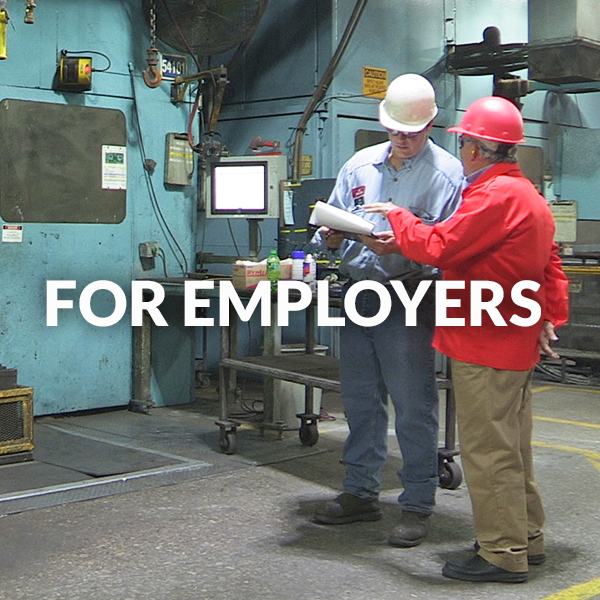Many manufacturing employers report facing skills shortages. Employers who want a pipeline of skilled workers, customized skills training for workers, increased retention, increased productivity, and a positive return on their investments may consider the IMT apprenticeship due to its:
• World-Class Standards: The IMT is based on world-class standards for frontline advanced manufacturing work based upon the Manufacturing Skills Standards Certification (MSSC). Employers who adopt the IMT are ensured that the skills of their frontline employees exceed those of manufacturing workers around the world.
• Customized: the IMT can be customized to meet the demands of specific industries, workplaces and apprentices. It has been successfully implemented in a range of industries including food processing, metalworking and bio-medical production.
• Accelerated: The IMT utilizes a competency-based assessment; in some states, apprentices can “test out” of portions of the curriculum, or they can achieve advanced standing in the program based on previous experience and the current skills, so they do not waste time training for things they have already mastered, and skilled workers can move to higher level of competency more quickly.
• Validated Credentials: The IMT provides apprentices with industry recognized, MSSC certification, which is a widely recognized credential in the manufacturing industry. MSSC credentials send a strong message to customers that IMT manufacturers value and invest in quality.
How It Works
Employers participate in the IMT by identifying skill requirements for your company, hiring new workers or selecting current workers as apprentices, and providing mentors to deliver on-the-job learning. Employers must provide time for apprentices to complete their instruction, as well as define pay rates, including wage increments at key points as apprentices become more skilled. It is also helpful if employers maintain apprentice records and participate in a return-on-investment study.
Benefits for Employers
IMT employers reap many benefits that come along with a skilled workforce. For example:
• IMT employers develop skilled and committed workers who take responsibility to improve their jobs and contribute to the competiveness of the firm—and this helps to grow the business.
• IMT employers invest in the development of all their employees—and this builds a culture of learning, safety, and quality throughout the workplace.
• IMT employers adopt an innovative, long-term HR strategy—and this helps to attract, recruit, and retain highly skilled workers.
• IMT employers with collective bargaining agreements can engage with their unions to implement the IMT apprenticeship through labor-management partnerships.
